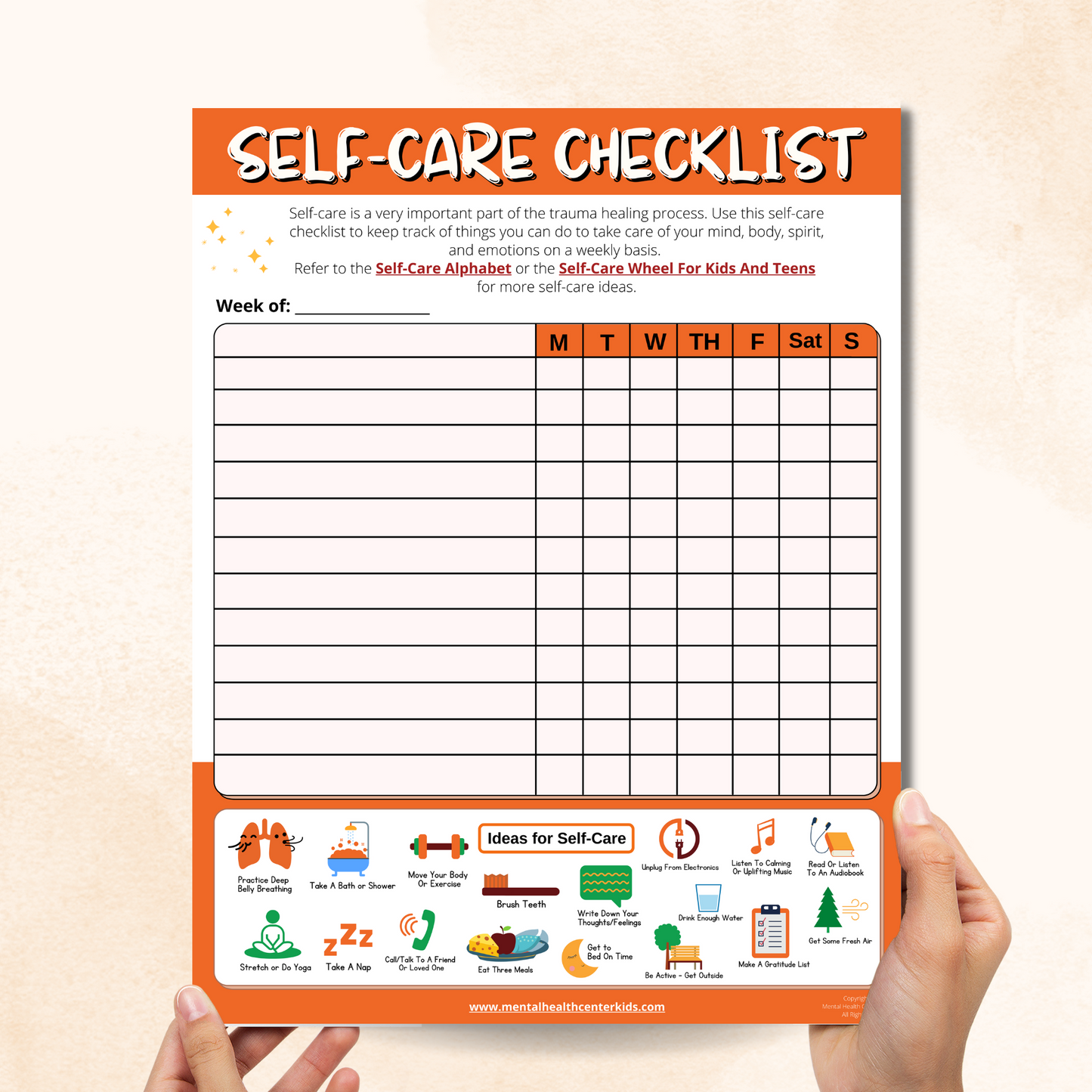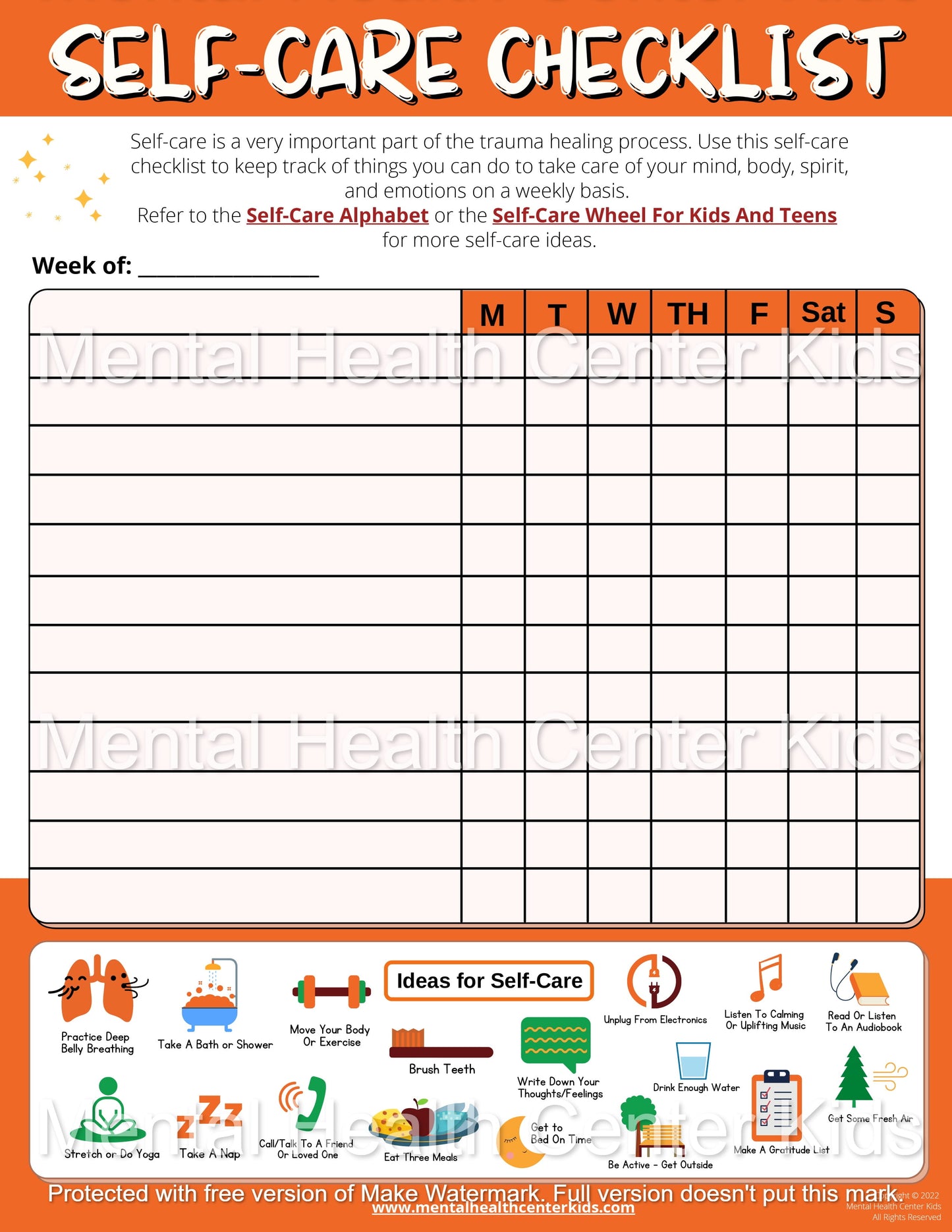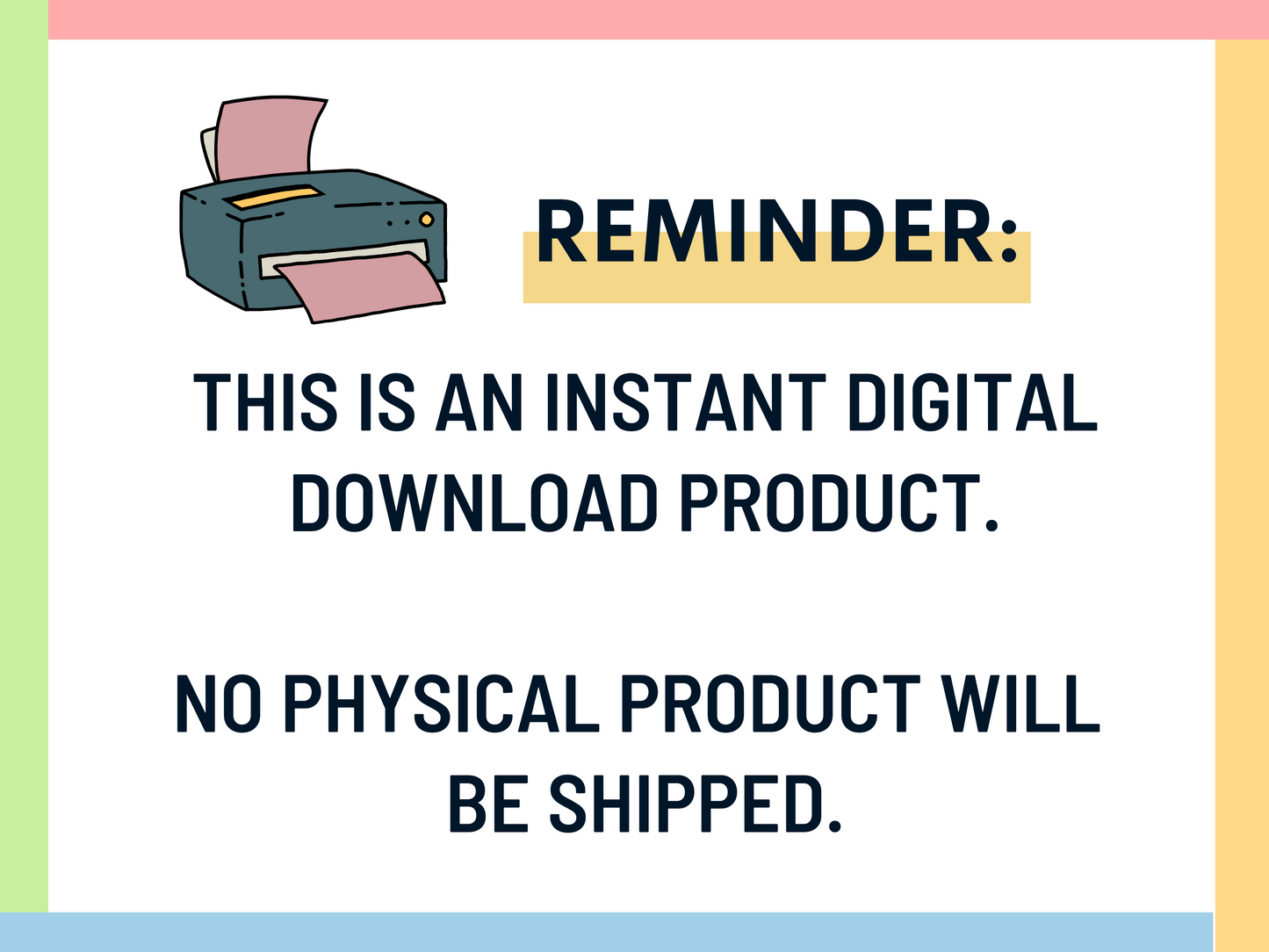Trauma Self-Care Checklist



Self-care is a vital part of healing after trauma. When someone experiences trauma, it can make them feel overwhelmed, disconnected, or even numb. Engaging in self-care allows them to focus on their needs, feel more in control, and begin healing from within.
The Trauma Self-Care Checklist is a tool that can be used to keep track of activities that trauma survivors can do to care for their minds, bodies, and emotions on a weekly basis. To help them get started, they can refer to the “Ideas for Self-Care” section at the bottom of the page.
Answering this worksheet helps kids and teens develop a consistent self-care routine, which lowers stress and improves emotional well-being. Revisiting the checklist regularly allows them to adjust their strategies to meet their changing needs. This provides ongoing support as they manage trauma.
Adults can pair this activity with a self-care journal, where young people can track their progress and reflect on how each activity affects their mood. They can also review completed worksheets together and create new self-care activities, such as mindfulness exercises or creative outlets.
This worksheet pairs well with your Self-Care for Kids and Teens handout, for additional self-care examples.
*This item is an instant digital download. A link to download your files will be emailed to you once payment is confirmed.
Want more resources like this? Check out our full catalog of trauma worksheets and handouts.
References:
- Peckham, M. (2021). Self-care and grounding. Looking at Trauma, 13-20. https://doi.org/10.5325/j.ctv1wmz3qr.8
- Riegel, B., Barbaranelli, C., Stawnychy, M. A., Matus, A., & Hirschman, K. B. (2024). Does self-care improve coping or does coping improve self-care? A structural equation modeling study. Applied Nursing Research, 78, 151810. https://doi.org/10.1016/j.apnr.2024.151810
- Shannon, P. J., Simmelink-McCleary, J., Im, H., Becher, E., & Crook-Lyon, R. E. (2014). Developing self-care practices in a trauma treatment course. Journal of Social Work Education, 50(3), 440-453. https://doi.org/10.1080/10437797.2014.917932
- Truscott, A., Hayes, D., Bardsley, T., Choksi, D., & Edbrooke-Childs, J. (2023). Defining young people’s mental health self-care: A systematic review and Co-development approach. European Child & Adolescent Psychiatry, 33(11), 3765-3785. https://doi.org/10.1007/s00787-023-02320-7
- Instant digital download
- File: Fillable PDF
- Size: 8.5" x 11"




